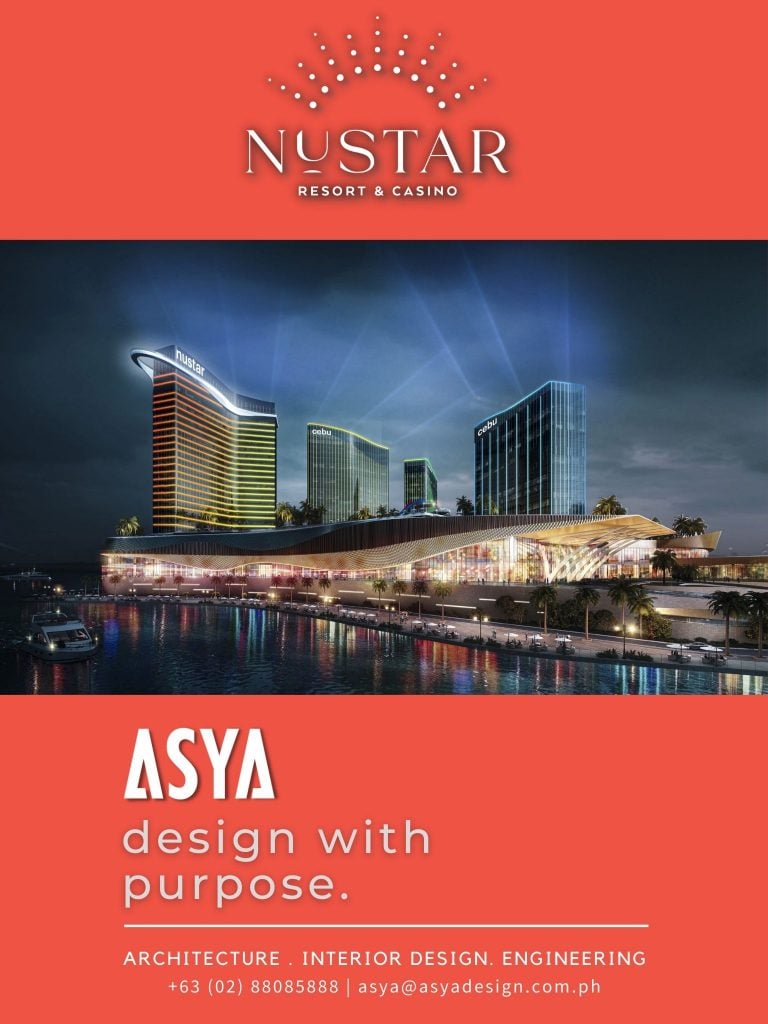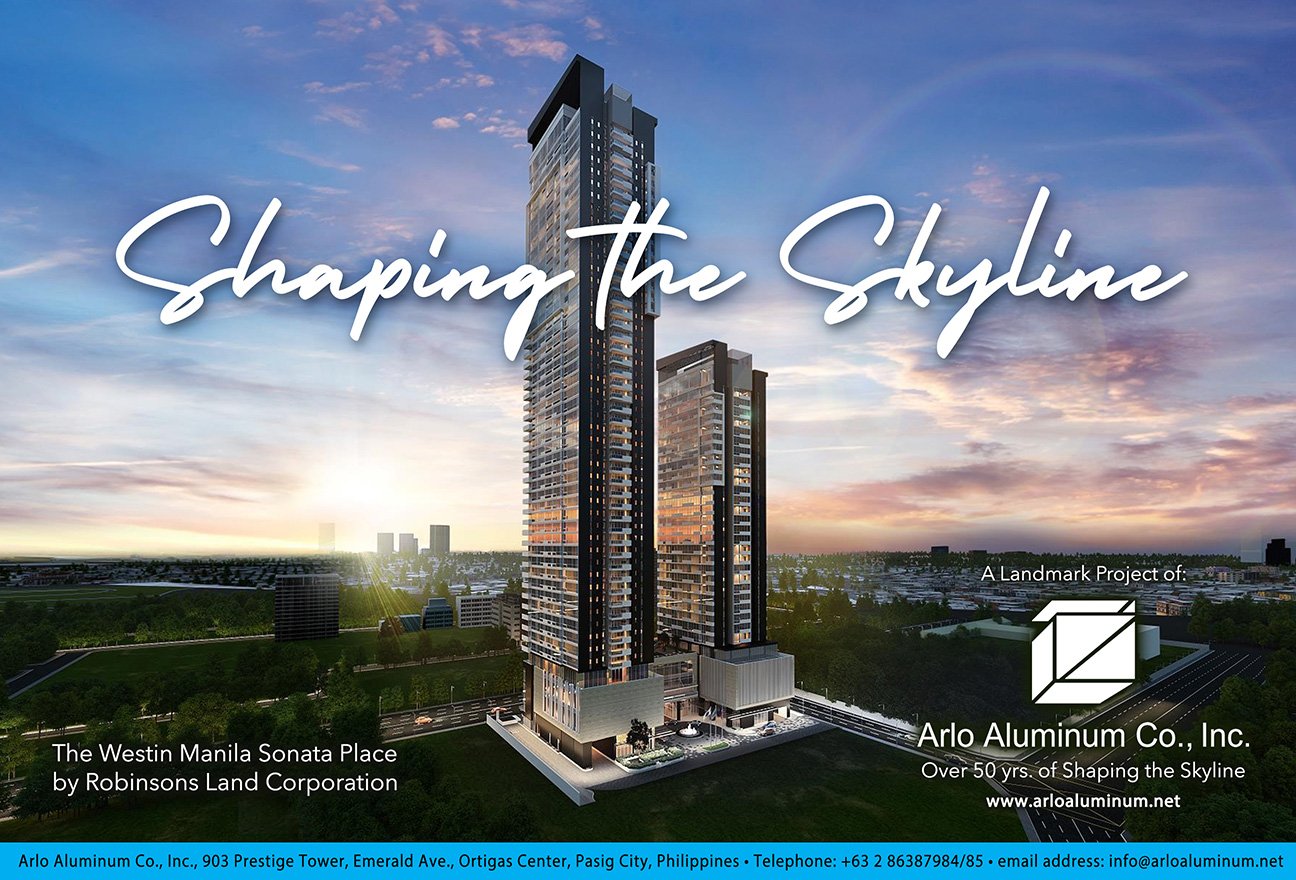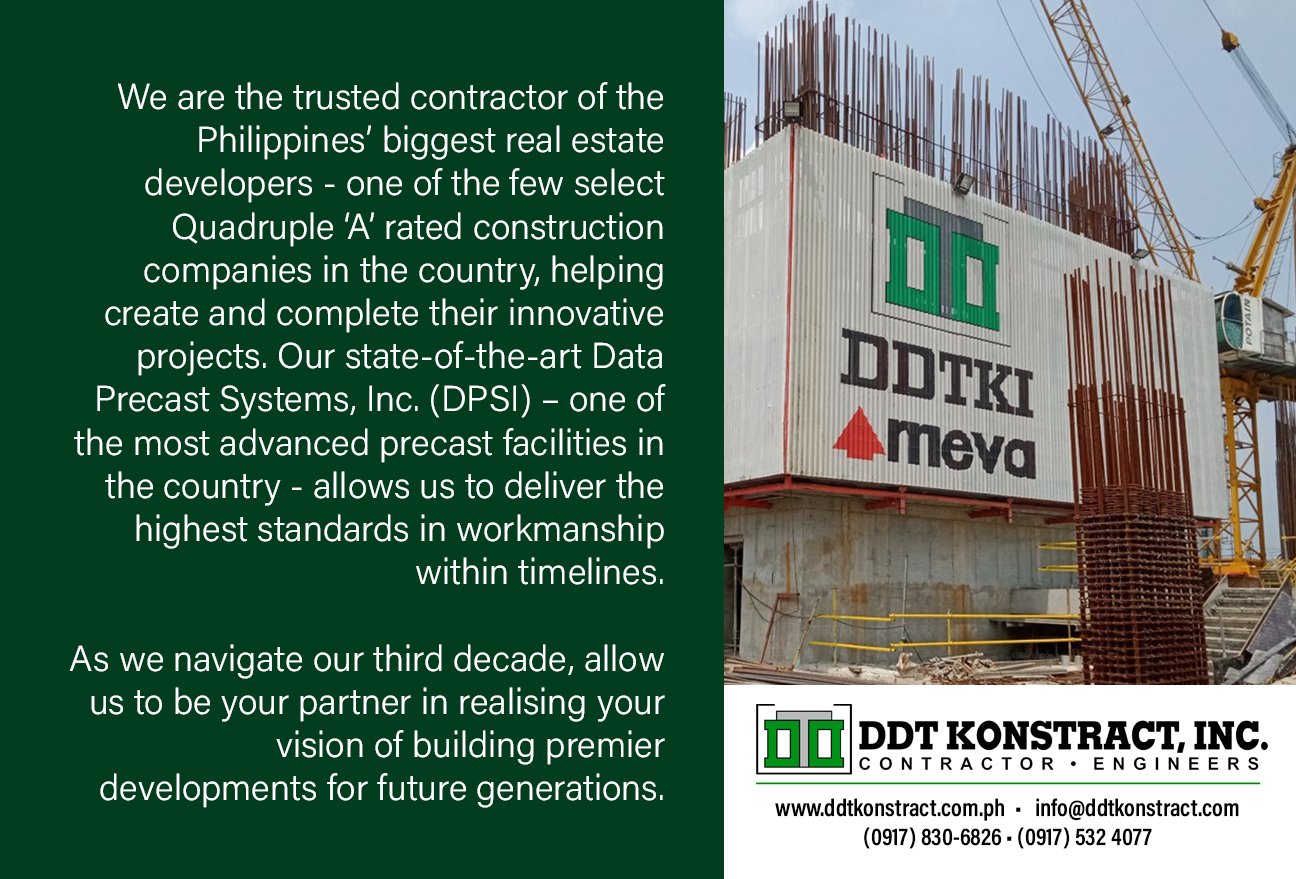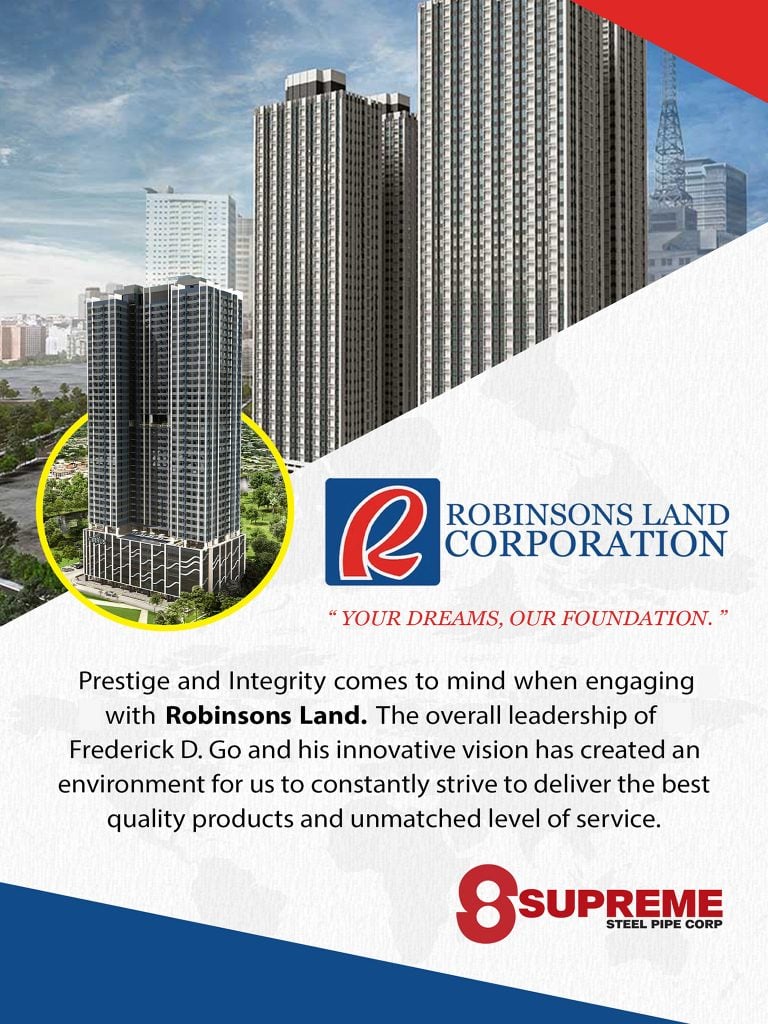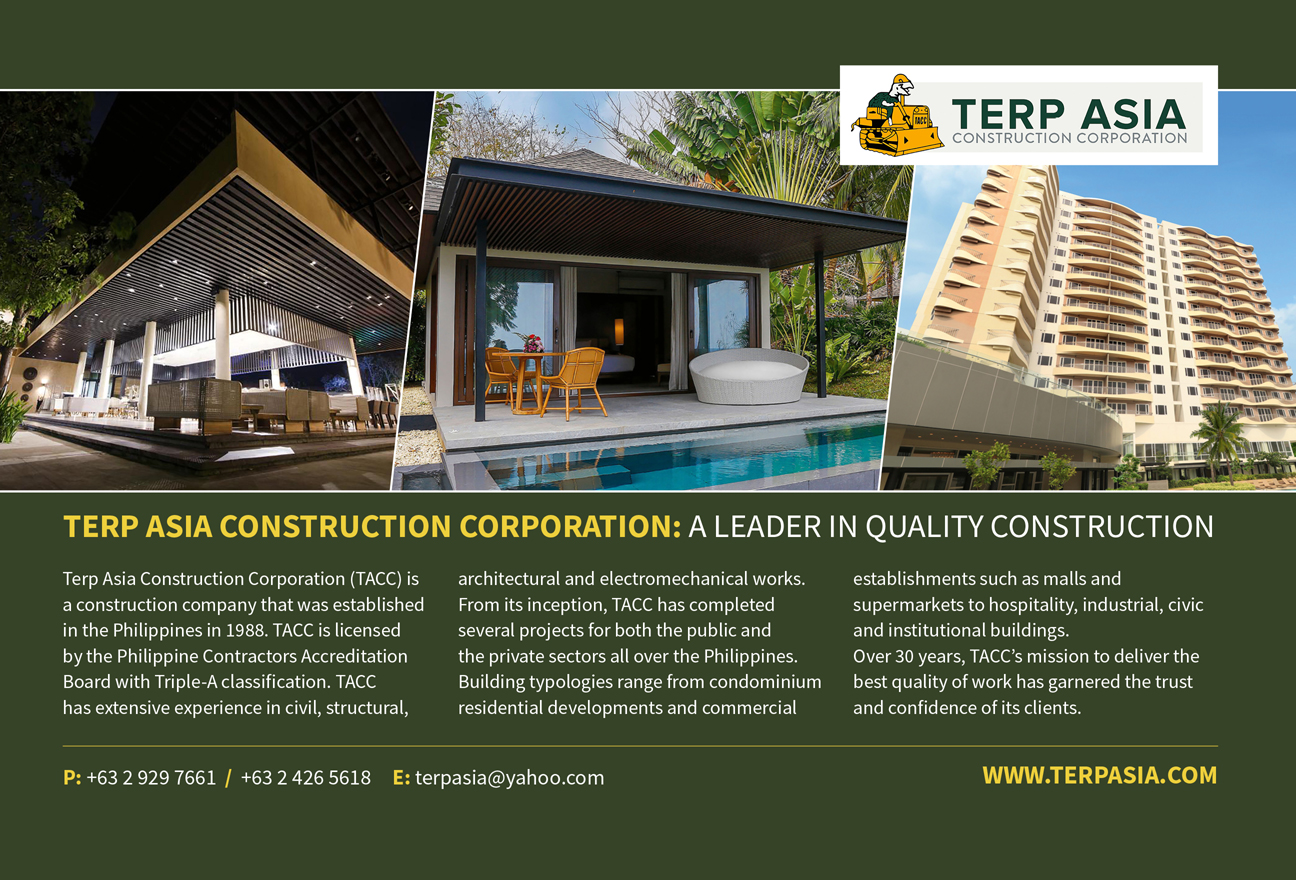Once a low-lying cluster of colonial buildings and churches, the Manila skyline is now constantly changing, sprouting ever more futuristic clusters of steel, glass and concrete that reach higher and higher into the sky. But far from being a mere imitation of other global cities, this thriving hub is home to some serious innovation with Robinsons Land Corporation (RLC) spearheading the new wave. It’s an exciting movement that President and CEO Frederick Go is proud to have helped steer over the past 30 years.
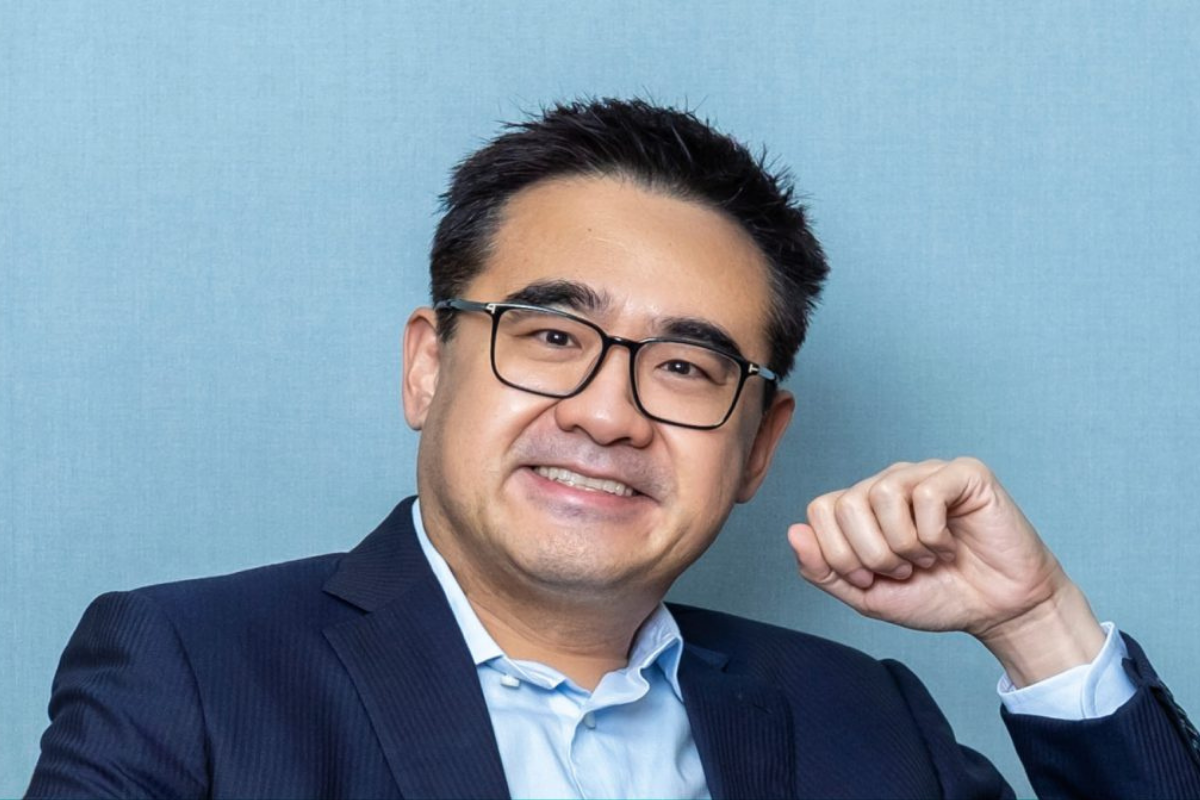
RLC is one of the Philippines’ leading real estate companies and part of the Filipino conglomerate JG Summit Holdings, which was founded in 1990 by renowned businessman and Go’s late uncle John Gokongwei, with the vision to “make life better” for the Philippines through its diverse interests in food products, telecommunications, petrochemicals, air travel and financial services.
Through RLC, it aims to do the same in the sphere of real estate by building “thriving, sustainable communities”, something Go is confident the company has achieved with each project it has completed to date.
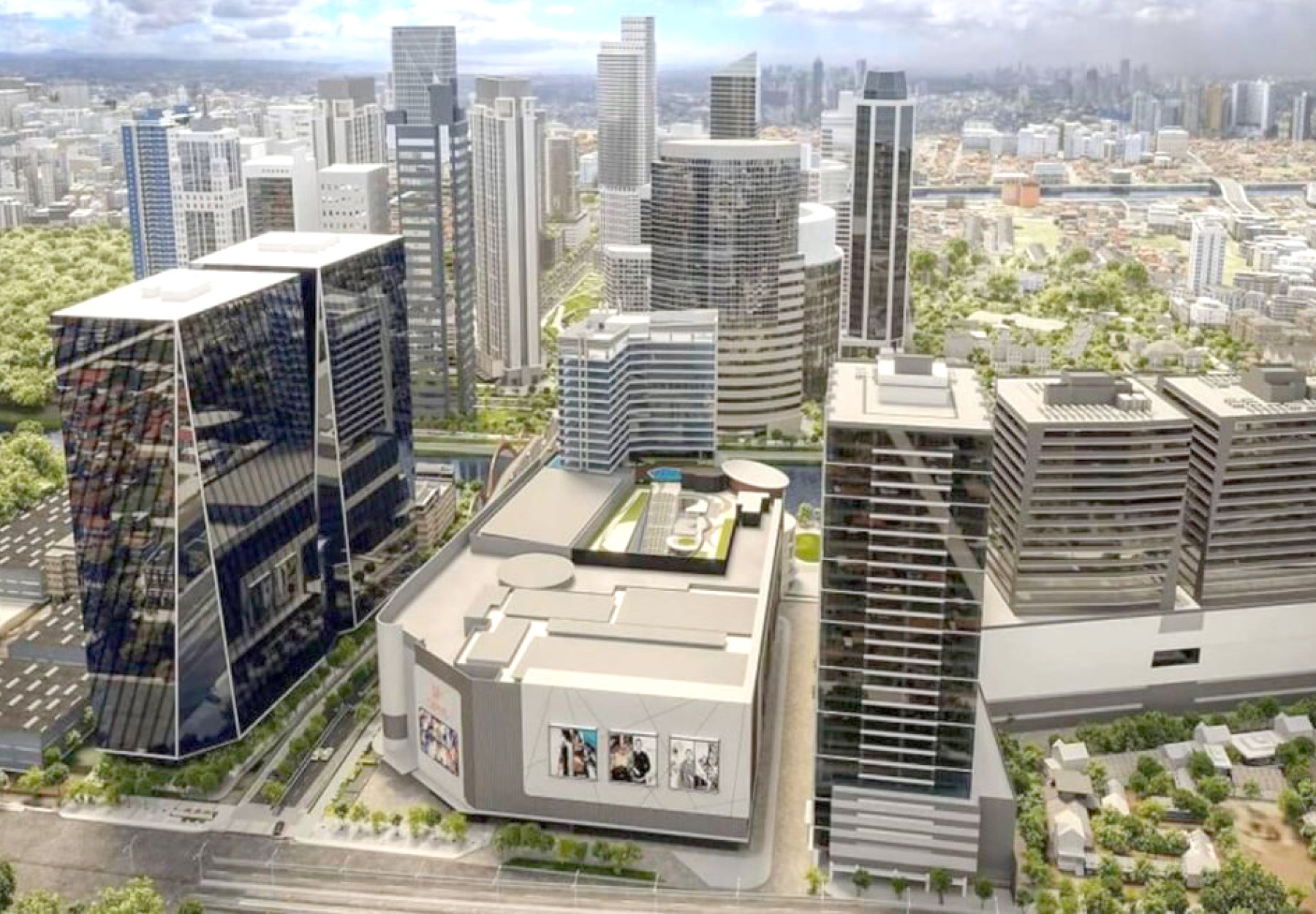
Say hello
Go, affectionately known by those around him as FDG, joined the company in 1992 in search of a fulfilling role that would satisfy his longstanding desire to make a difference. Having attended the Ateneo de Manila University, he had initially gone into journalism, working as Editor-in-Chief at campus publication The Guidon and then as a business reporter at The Manila Times, also owned by Gokongwei.
But after three years, the thrills and rewards offered by the printed word were not enough for him. “I wanted to do something bigger,” he recalls. “There was a natural limit to how much we could grow the publication, so I wanted to do something larger in scope and larger in responsibility.”
Serendipitously, this realisation came around the time an opportunity came up at RLC, then still a very small company, and Go saw the potential. “We basically had five assets,” he explains. Of those five, three have since been sold off. Pretty much everything one can see today was built under his watch. “Today, we have 53 shopping malls, 27 office buildings, over 100 vertical and horizontal residential developments, 21 hotels and resorts, five work.able centres, six industrial facilities, and 19 mixed-use developments.”
I wanted to do something larger in scope and larger in responsibility.
RLC’s real estate assets can be found in the major central business districts and key cities of Metro Manila, such as Bonifacio Global City, Makati, Ortigas, Mandaluyong and Quezon City. In fact, its presence stretches across the entire archipelago, in key cities and other urban areas from Ilocos in the North down to South Cotabato.
Since it was founded in 1980, the company has grown into a major player across six business areas: lifestyle centres, residential, office buildings, hotels and resorts, integrated developments and logistics and industrial facilities. However, many of its developments blur the lines between these divides, with RLC integrating them as mixed-use properties.
And while the onset of the pandemic was a mixed bag for RLC, striking its hospitality and mall businesses the hardest, Go reveals that the episode resulted in the pause that was required for the company to accelerate its digital transformation across the board.
A Little TLC
Overseeing such an extensive portfolio sounds stressful, but Go stays on top of his personal wellbeing by avidly playing and watching sports. He loves to play badminton and basketball – and he’s also a keen supporter of alma mater badminton team the Ateneo Blue Shuttlers.

Momentous milestone
The immense uncertainty of the pandemic, while responsible for rising stress levels all around the world, has done little to slow RLC’s powerful momentum. This year, the company has embarked on an impressive expansion, opening one new mall and a mall expansion, in addition to completing four office developments, a deluxe hotel, and three logistics facilities.
The cherry on top came in September when Go orchestrated the largest Philippine real estate investment trust initial public offering, raising approximately US$471 million from the initial share sale of RL Commercial REIT, the company that owns 15 of RLC’s 27 office buildings.
“It’s a big deal. It’s a big transaction and milestone for the company. It’s game-changing, so to speak, for the country and for the company,” Go says. It makes RLC the fourth REIT to be listed on the Philippines Stock Exchange, and with 425,315 square metres of gross leasable space, it has the biggest portfolio among all of them at the time of listing.
Proceeds from the IPO will be used according to the disclosed REIT plan, with Go expecting the investment to begin contributing to company income within as little as 12 months. It may also see RLC complete two office buildings instead of the previously anticipated one in 2022.
Pandemic shift
In a year characterised by change, some of RLC’s greatest strides have been made in an area of increasing importance for the company. “Our biggest efforts have been in the digital space, whether it was digital transformation or in digital initiatives,” Go reveals. That has been seen both in the way the company operates internally, and also how it interacts with the world beyond.
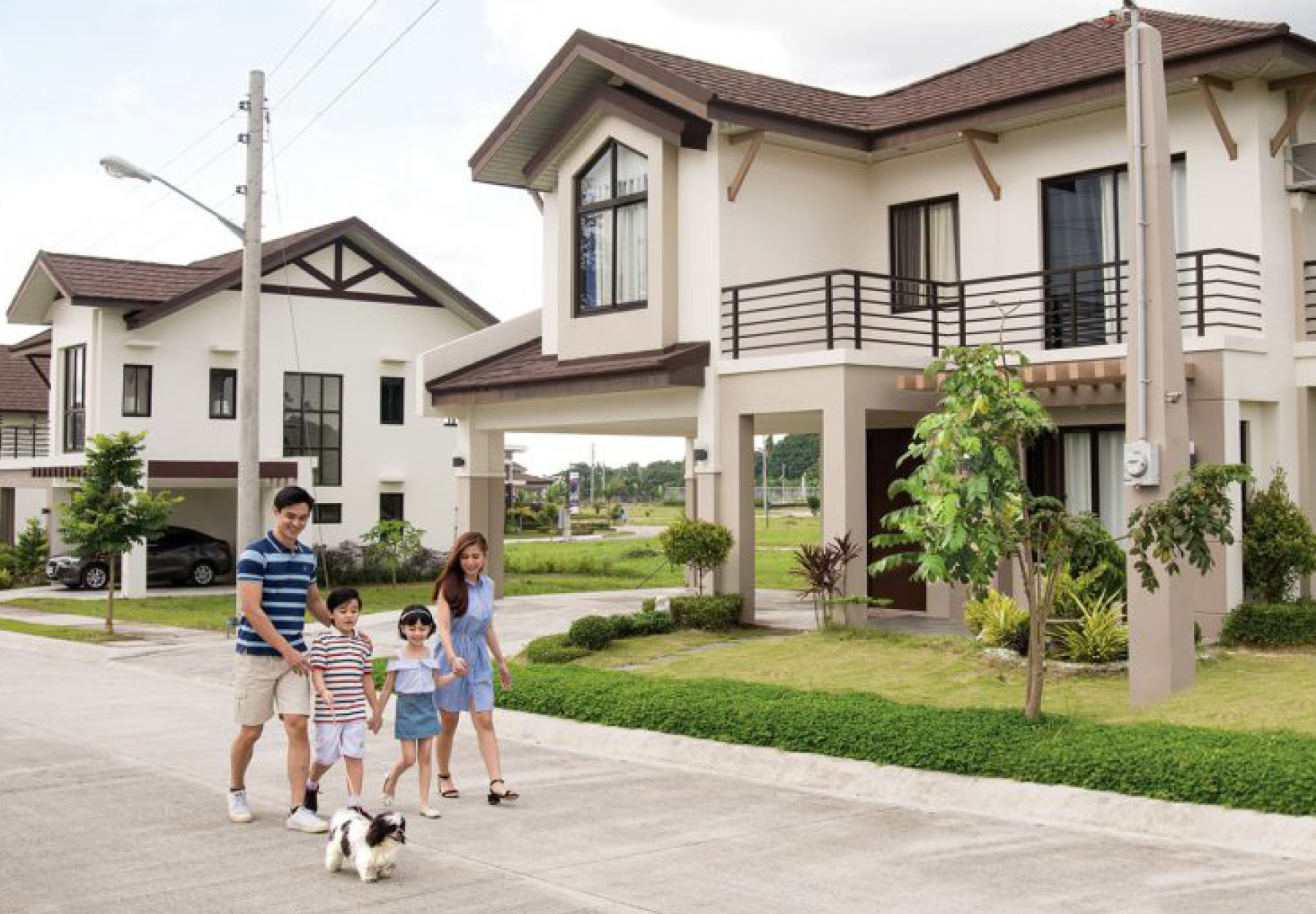
Looking at the way the company functions, it is clear that a massive shift has occurred. “For example, there are times when we move completely to remote meetings – now 90–95 per cent of the meetings in the company are done electronically,” he shares.
“We’ve enabled our team members, our employees and executives to use Microsoft Teams and Zoom as they do other social media platforms. We’ve also enabled the easy signing or transfer of documents by using Adobe Sign, which also allows electronic signatures via PDFs.”
Our biggest efforts have been in the digital space, whether it was digital transformation or in digital initiatives.
The rapid adoption of Microsoft Teams specifically shows how dramatically company operations have altered. “We had access to it already pre-pandemic, but nobody used it – not even one per cent of the company used it,” Go admits. “But post-pandemic we were able to pivot and tell everybody, ‘Hey, we can use this. This is how we can continue to communicate with each other.’” Now the company uses it for a wide range of purposes such as planning, broadcasting, workshops and training seminars.
Supreme service
From a broader perspective, the focus of introspection during this period has been on “making life easier for the customer” – something that has always been a priority but which has been heightened as a result of the pandemic. It’s not an easy mission, however. The company works in six business sectors and has both internal and external customers, creating a complex maze of needs and solutions.
Its internal clients are the 1,300-plus agents who sell RLC’s condominiums. To better cater to them, the company has created a “sellers’ portal” – a platform where they can all communicate directly with the office regarding reservations, enquiries and updates.
“Before, everything was done manually,” Go explains. “Now, they know which units are available, if there’s a price increase, if there’s a change in the status of the unit – all through a sellers’ portal. Like everything else, we started working on it pre-pandemic, but post-pandemic everything has sped up and the adoption is coming much faster.”
For RLC’s external customers – namely, its buyers – it has created a buyers’ portal. “Buyers of our condominium units can also go into this digital website platform and know everything about the unit they have bought – when the payment is due, whether they made a payment, whether their unit is ready for turnover, announcements regarding the building they bought and so on,” he shares.
We created multiple platforms, multiple working engines to make life easier for the internal customer as well as the external customer.
Then there’s the MyRLC platform, which has been created especially for unit owners and aims to make residing in the company’s properties as hassle-free as possible. “The unit owners or their tenants can now log into this MyRLC platform and figure out what bills they need to pay, read any announcements, or learn about any rules such as no pets allowed,” Go says.
All three platforms have been designed to fit in with the need for contactless technology as a result of COVID-19. “That’s how we adjusted to this pandemic,” he points out.
But it doesn’t end there. In its mission to enhance the way it interacts with its customers, RLC has also devised an app entitled Ring Rob Concierge. “When you’re calling a store, you’re calling a concierge, so we decided to create our own and we called him Rob, short for Robinson,” Go reveals.
“Let’s say you’re a unit owner and you need your light bulb fixed, laundry to be taken from your unit, or you need a leak to be fixed or your house or condo unit to be cleaned – or the most common one is actually when they have a water station they want to be refilled – all of that can be done through the Ring Rob Concierge app.
“These are examples of how we created multiple platforms, multiple working engines to make life easier for the internal customer as well as the external customer.”
Checking in
As demand for leisure and business travel dried up, like so many other hospitality firms, RLC felt the pinch across its collection of hotels. Yet, defying the odds, it continued to grow. Its hospitality arm, Robinsons Hotels and Resorts will hit more than 3,200 keys this year with its diverse portfolio ranging from five-star international branded hotels in major cities and resort destinations to urban, mid-market hotels.

It has hotels operating under some of the world’s biggest hospitality brands such as Crowne Plaza, Westin, Holiday Inn and Dusit Thani as well as its own chains, the mid-scale business and leisure offering Summit Hotels and Resorts, the innovative value concept Go Hotels, and its newest upscale brand – Grand Summit Hotels – which unveiled its maiden offering last October. It also has plans to introduce a dormitel concept specifically targeting students and young professionals.
Again, better serving its hospitality customers has been the name of the game to help secure a strong future for its hotels and resorts. So what has the company been doing on this front? Perhaps unsurprisingly, the answer lies once more in the digital space. “We again created an app and a website that make it contactless for our clients to book their room and check into their room without having physical contact with any of our team members,” Go says.
We again created an app and a website that make it contactless for our clients to book their room and check into their room without having physical contact with any of our team members.
“We have a property management system that allows our team members to know everything about the room – whether it has been cleaned, whether the room is occupied, whether the room is available, the room rate and more.”
This ability to adapt to the changing needs of its guests, and indeed society, has also seen RLC make other tweaks to its offering. The decline in hotel stays coincided with the rise of remote working; however, this new dynamic has brought with it a whole new realm of difficulties. For example, employees with small children at home can find it hard to concentrate, and then there is the fact that not all Filipinos have access to the internet at home. According to data from the World Bank, there were only five fixed broadband subscriptions per 100 people in 2019.
Pandemic Pivot
Guests at Go Hotels in Ortigas and Mandaluyong can rent their very own 18-square-metre office space, which can be furnished with office tables and chairs. Meanwhile, at Go Hotels Ortigas Center, guests can combine an 18-square-metre office space with an adjoining 18-square-metre guestroom. The Summit Hotels properties offer a bit more room with 30-square-metre spaces available for use – either furnished or unfurnished – and a 56-square-metre space with an adjoining room and office at its Greenhills property.
The hotel operator also performed another impressive pandemic-inspired pivot back in January with its offer of COVID-19 testing packages – a partnership with The Medical City in Manila. Packages included overnight stays with full board, wi-fi, international TV and an antibody test all bundled in.
Recognising the importance of this shift and the accompanying challenges, Robinsons Hotels and Resorts came up with its own remote working solution, offering spaces that can be used as offices within its Go Hotels and Summit Hotels properties, which come with an internet connection and the option to be furnished with office tables and chairs.
Click on it
Another area of immense change in recent years, catalysed by the onset of pandemic and the dawn of lockdown living, is the world of ecommerce. Until now, the Philippines has been somewhat resistant to the digital transformation that has swept the retail landscape in other parts of the world. The reason for this is largely because more than two-thirds of the population, equivalent to around 51 million adults, did not have a bank account as recently as 2019.
However, recent years have seen an across-the-board commitment to kickstarting the country’s digital transformation, a drive that was further accelerated as the impact of the COVID-19 pandemic became clear. “I think the adoption of ecommerce has been very rapid in the past 15 months, and I think it’s a trend that will continue,” Go reflects.
He is determined to ensure that RLC is at the forefront of this shift, particularly as it is one of the Philippines’ largest players in the retail space. “So that we can play in the growing ecommerce space, we have created a mall service app called MallDash,” he reveals, adding that the new platform has already been rolled out in four of its malls, specifically in Antipolo, Magnolia, Las Piñas, and Ilocos.
“In five years, this will be a fully developed service platform that the customers in the malls can use and avail of, and it helps both our tenants sell their goods and their services, and our customers, the mall patrons, to avail of these in a very efficient, timely and safe environment.”
The platform gives shoppers access to all the retailers located in RLC’s malls, enabling them to order food, clothing, cosmetics and more to be delivered straight to their doorstep at no extra charge or to be prepared for pick-up. The new offering’s point of difference to the other shopping apps that are rapidly appearing is that it gives users access to a wide variety of stores in one transaction.
Future foundations
From lifestyle centres to industrial facilities, RLC’s diversified interests in various areas of the real estate sector turned out to be a saving grace during the tumultuous pandemic period. Although its net profits dipped in 2020 as income from its hotels and malls declined and sales of residential properties slowed, its offices, industrial facilities, and property development businesses demonstrated resilience and stability.
In fact, it has bolstered its investment in offices this year and completed four developments, which have boosted its total office leasable space by 15 per cent to 708,000 square meters from 613,000 square metres at the end of 2020.
Far from being your run-of-the-mill office spaces with these new high-rise offerings, RLC is creating the next generation of future-ready office buildings to ensure that its office spaces remain in high demand. As an example, the GBF Tower 1 and Tower 2 developments in its new “premier destination estate” known as Bridgetowne, will have an advanced destination control elevator system with a high elevator-to-leased-area ratio. By combining cutting-edge technology with the right number of elevators, users won’t find themselves twiddling their thumbs waiting for elevators. Apart from being a better user experience, it results in less idle time and therefore increases productivity – great news for companies.
Bridgetowne Rising
Inspired by RLC’s LIVE-WORK-PLAY-INSPIRE ethos, the Bridgetowne Destination Estate will be a master-planned mixed-used development made up initially of seven prime office buildings, a luxury lifestyle centre, a five-star hotel and several residential condominiums. At its heart will be a landmark bridge and public art installation called The Victor.
Bridgetowne is set to become the Philippines’ premier integrated smart city, following its selection as the site of the country’s largest carrier-neutral data centre.
Local data centre services provider Beeinfotech PH has leased out Bridgetowne’s Campus One development, an almost 19,000-square-metre space where it will house its core data operations. The “telco-neutral” data centre will enable various telecommunications carriers to interconnect, thereby allowing it to serve all technology and network providers.
Beeinfotech PH will also build a power centre on a 1,500-square-metre plot of land adjacent to the leased premises, which will ensure its significant power supply needs are met.
Bridgetowne promises to be a vibrant place to work, with the development strategically located in the midst of the C5 corridor, home to a high concentration of IT and business process management companies.
Its strategic location in Quezon City and Pasig, along with great connectivity, makes it extremely accessible for employees who can reach it via three of the main thoroughfares in Metro Manila: Ortigas Avenue, Amang Rodriguez Avenue and C5. There are also plans to further increase accessibility through shuttle services or point-to-point bus connecting Bridgetowne with RLC’s mixed-use integrated development in Robinsons Galleria.
The buildings will also have contactless features to help ensure the health and wellbeing of workers and tenants. Some of these innovations include hybrid metal detectors with thermal scanners, automatic alcohol dispensers in strategic locations within common areas, as well as faucets, urinals and soap dispensers inside toilets that are activated by infrared technology.
I think the adoption of ecommerce has been very rapid in the past 15 months, and I think it’s a trend that will continue.
Important alliances
With many of RLC’s major projects – the results of collaboration with other investors and developers – partnerships are undoubtedly critical to its success. “I’m proud to say that there are many families and companies that have entrusted their properties to us through joint ventures,” Go beams.

“For example, I have partnerships with Shang Properties, one of which is the Aurelia Residences, the most high-end residential condominium in the Philippines in Bonifacio Global City. It’s a 50–50 partnership with Shang, which is a very well-renowned Asian conglomerate, not just in the Philippines.”
A different project within Bridgetowne, The Velaris Residences, a 45-storey premium residential development, is the result of another major partnership, this time with Hongkong Land. “The Velaris will be a veritable masterpiece at the heart of Bridgetowne, which will be a community of thousands and thousands of people when it’s fully built,” Go says of the property.
“Hongkong Land is also a multinational, Hong Kong-based real estate conglomerate. Both conglomerates are very selective about who they choose as partners, so to be selected by these two prestigious companies as a partner tells you a lot about the company and the reputation that we have.”
In addition, Go has also signed a 50–50 joint venture with DMCI and partnerships with the Metrobank Group, GT Capital Holdings’ Federal Land and Security Bank. “These are examples of groups as big as us or bigger that have chosen to do business with us on an equal-footing basis, which confirms how they feel about our track record, our reputation and our ability to be good partners,” he explains.
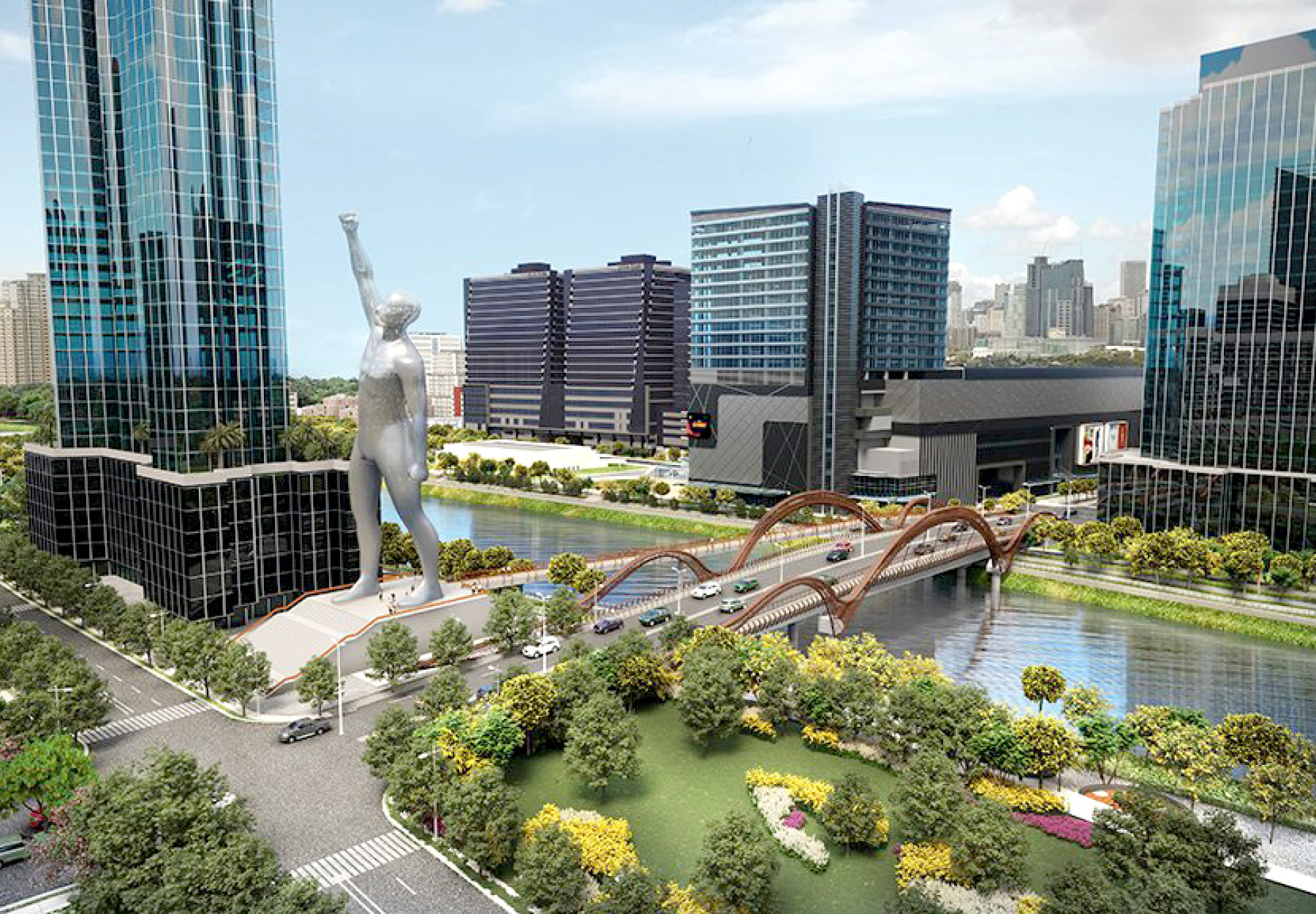
These are examples of groups as big as us or bigger that have chosen to do business with us on an equal-footing basis, which confirms how they feel about our track record, our reputation and our ability to be good partners.
While these are all real estate giants, Go is quick to point out that a similar emphasis is placed on all its supplier relationships, no matter the size of the operator. “I always tell our project team members to treat our suppliers properly,” he insists. “Before, when the meetings were all in person and the project meetings would run from, say, 3pm–5pm, I would get really, really upset when our project team would ask everybody to come here at three o’clock. Why ask everybody to come at three o’clock? You know that each individual meeting will last 10 minutes. It’s not OK for them to wait two hours – their time is precious.
“I probably had to call their attention five times before the whole team understood that I was serious about it, that I wasn’t just saying it for the sake of saying it. That’s a very simple example, but I think it tells you how I value them and how important I think they are. They’re not just suppliers.”
The selection process when it comes to suppliers is given the same respect. “It’s a long process, but at the end of the day, it comes down to a gut feeling,” Go explains. “We look for suppliers and contractors that are trustworthy, reliable and easy to talk to.”
Welcome Aurelia
A limited collection of 285 bespoke residences in upmarket Bonifacio Global City, Aurelia Residences has been brought to life by Shang Robinsons Properties – a partnership between RLC and Shang Properties, the property investment and development company behind the Shangri-La Hotel and the Plaza Mall.
Located close to Manila Golf Club, Manila Polo Club and Forbes Park, Aurelia sits on a 9,118-square-metre lot and brings together the creative energies of architect Brian Lee of world-renowned architectural firm Skidmore, Owings & Merrill and elite design company FM Architettura D’Interni Founder and CEO Francesca Muzio.
Despite the pandemic, the joint venture reported strong sales in the first half of 2021.
While balance sheets and other details all come into play, it is a supplier’s track record that will really sway Go. “Have they done a good job for us in the past? Check. Are they trustworthy? Check. Are they easy to talk to? Check. That’s it.”
Planet-focused innovation
A pivot to clean energy within RLC commenced back in 2015 and Go is keenly overseeing this transition as well as the other environmental, social and governance aspects of the company. “I think ESG is becoming more and more the norm,” he says. “It’s becoming more and more demanded of us by stakeholders, by shareholders and by customers, so we look at that very seriously now.”
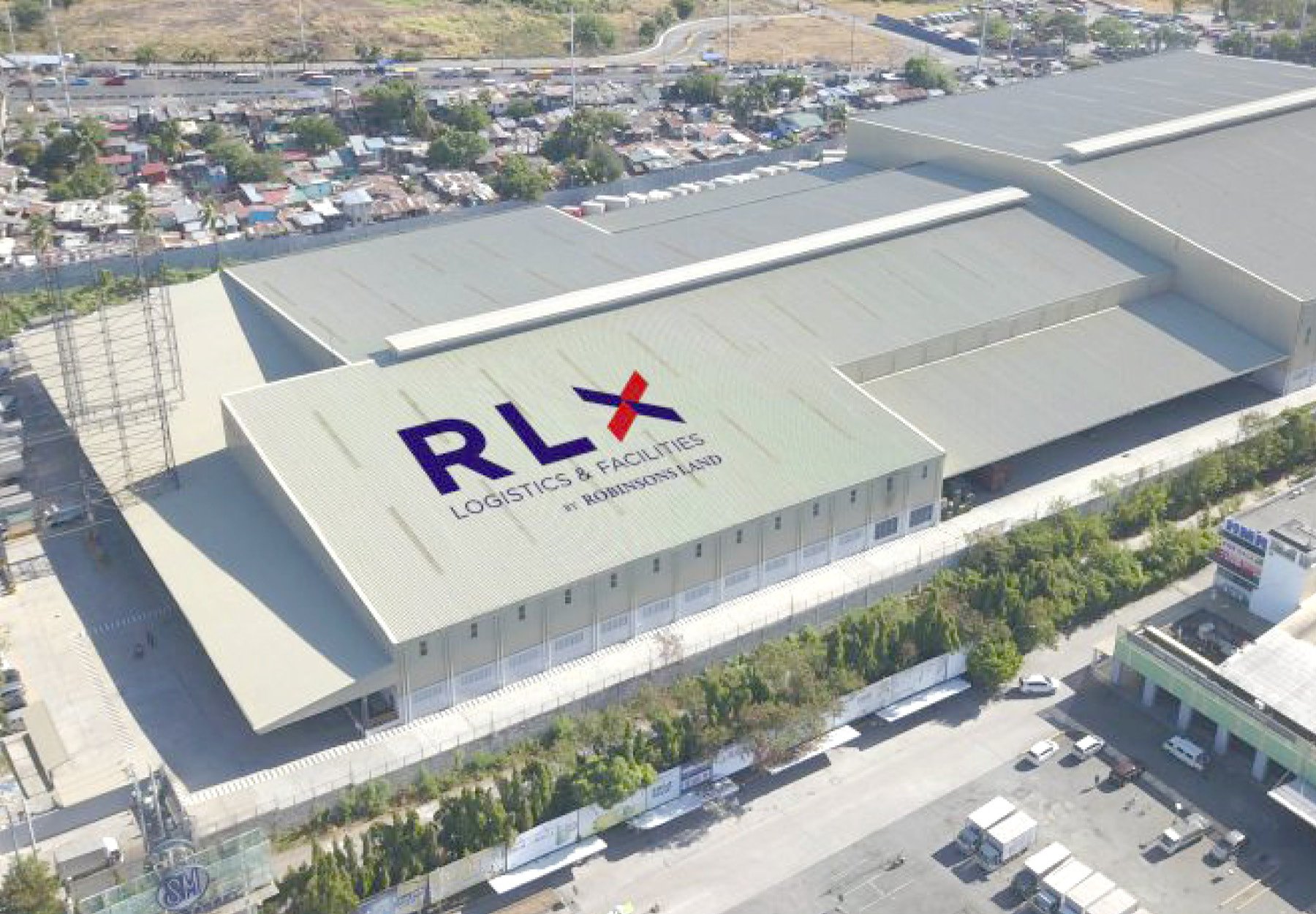
As of September this year, Robinsons Malls has installed rooftop solar-power facilities in two more of its malls, growing its clean energy portfolio to over 30 megawatts. The new solar rooftop installations in Robinsons Place Santiago in Isabela and Robinsons Place Butuan in Agusan del Norte take its tally of solar-powered malls to 24.
The investment is expected to relieve the burden on the national power grid, particularly during peak hours, and also help the government address instances of power shortage. It makes RLC the country’s largest mall operator powered by solar, according to Go. As well as benefiting the planet, it makes great business sense, he stresses. In 2020, the mall operator was able to generate PHP210 million (US$4.1 million) in savings from its solar power portfolio.
Over in Bridgetowne, RLC’s premium office developments are also equipped with energy-efficient features such as LED lights, water-efficient toilet fixtures which help to reduce power and water consumption, while double-glazed glass facades reduce the heat penetration and need for cooling. Three of its four completed office buildings are now registered with the US Green Building Council’s Leadership in Energy and Environmental Design (LEED), while Giga Tower and future Bridgetowne offices will also be registered with the scheme.
The company is aiming to achieve LEED Gold Certification for its new office buildings. This will be highly beneficial for RLC’s tenants, helping them to generate significant savings on their operating costs.
Getting back on track
All of these new offerings are indicative of the mindset that drives RLC and why it is so different to other players in the space. “I think it is our spirit of entrepreneurship, our spirit of innovation that gives us our advantage,” Go muses. “I think we’re big and yet not that big, so that allows us to have the flexibility and agility to be able to adapt to changes, to new trends and to innovate solutions that the market needs and wants.”
Words from the Founder
The Founder of JG Summit Holdings, John Gokongwei, was one of the Philippines’ most successful businesspeople and most renowned philanthropists. Although he passed away in 2019, his words continue to inspire people around the world, including Go.
• “Do what is right … do it with honesty and vigour. Be creative – that’s important. Don’t follow what other people are doing.”
• “I don’t rely on feng shui. I believe hard work brings us good luck and success.”
• “The important thing to know is that life will always deal us a few bad cards, but we have to play those cards the best we can. And we can play to win. This was one lesson I picked up when I was a teenager. It has been my guiding principle ever since. When I wanted something, the best person to depend on was myself.”
• “Love your family. Love your country. Never stop learning … And always look back and be grateful to where you came from.”
• “As a boy in school, I already had the drive to be number one. If I achieve my goals, OK, but if not, I always ask why and try to rectify myself.”
With Go confidently forecasting that RLC will return to pre-pandemic-level earnings in the second half of 2022, this approach seems to have strong legs. “We tried to keep the thinking process small. My job is to fight bureaucracy and to encourage innovation and entrepreneurship within the company,” he says.
“These qualities are very important because without them, the spirit of our Founder, John Gokongwei, will disappear. One of his main beliefs that he always tried to promote was entrepreneurship.”
Sponsored by: Monocrete
Monocrete has established itself as one of the most trusted and innovative construction firms in the country, continuously providing the best engineering alternative patented systems in the local industry.
Read More
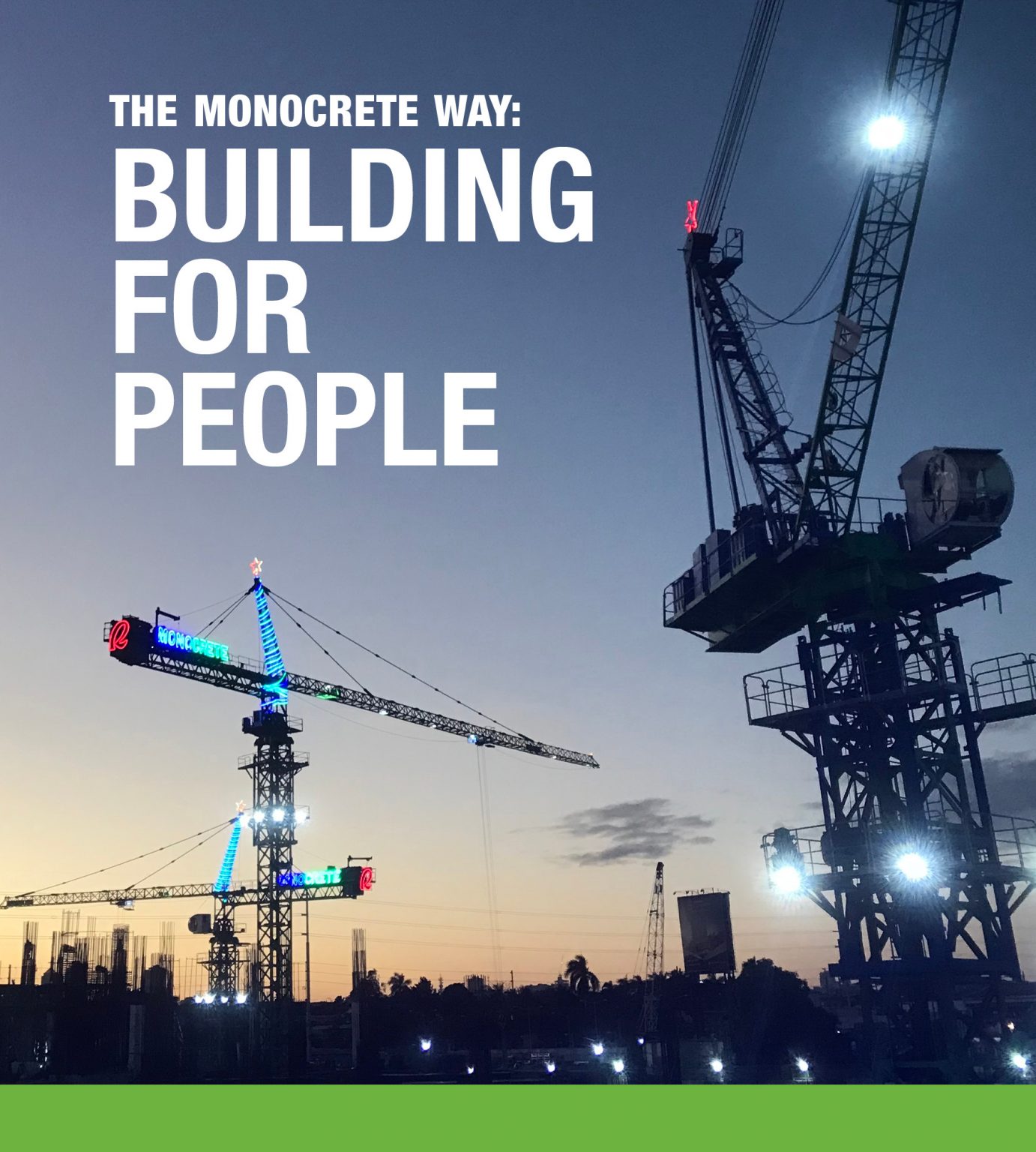
Sponsored by: SPES
SPES is a construction company with more than 27 years of experience. Its uncompromising approach to achievement and profitability has propelled it to phenomenal growth.
Read More
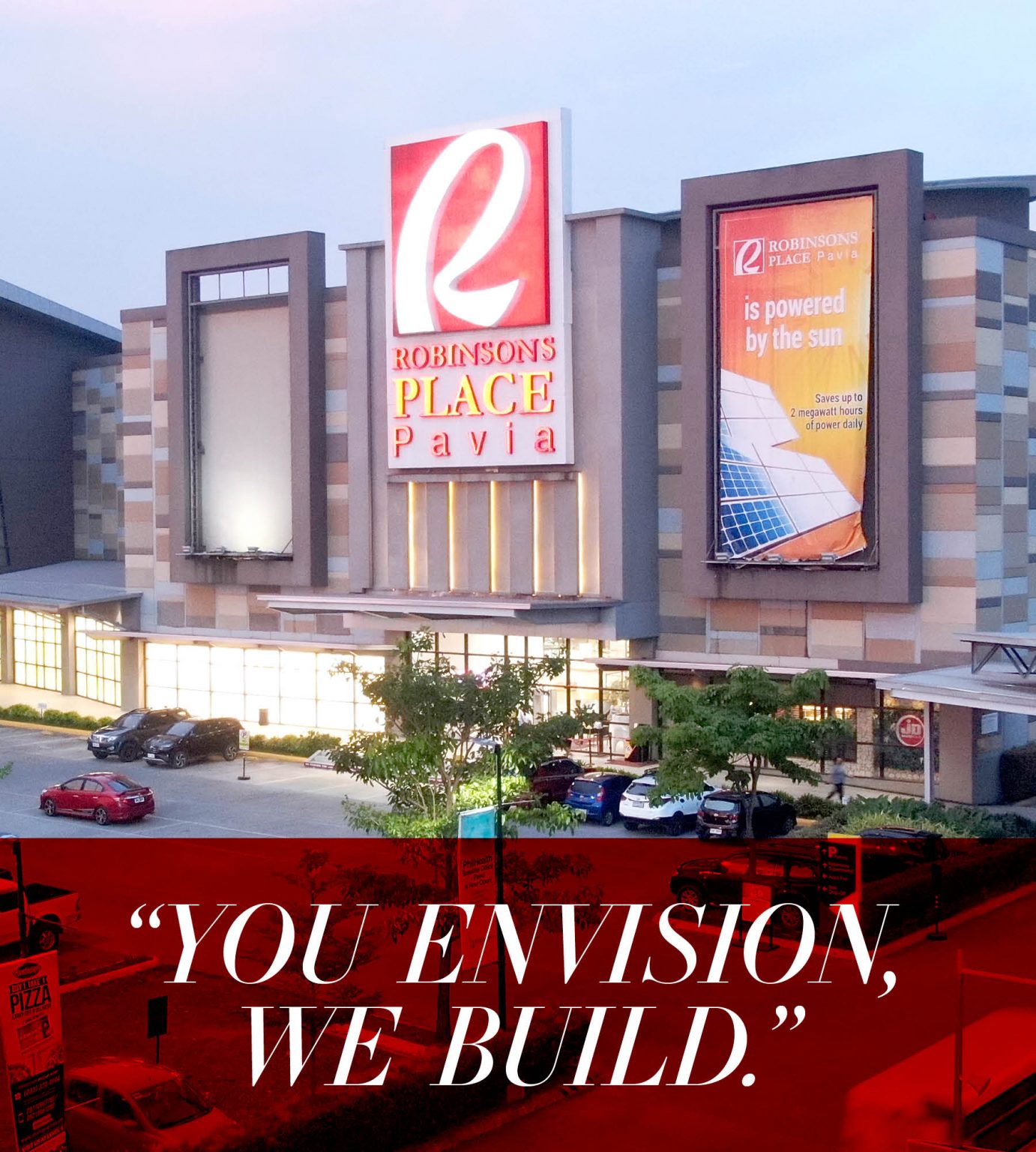
Proudly supported by:
